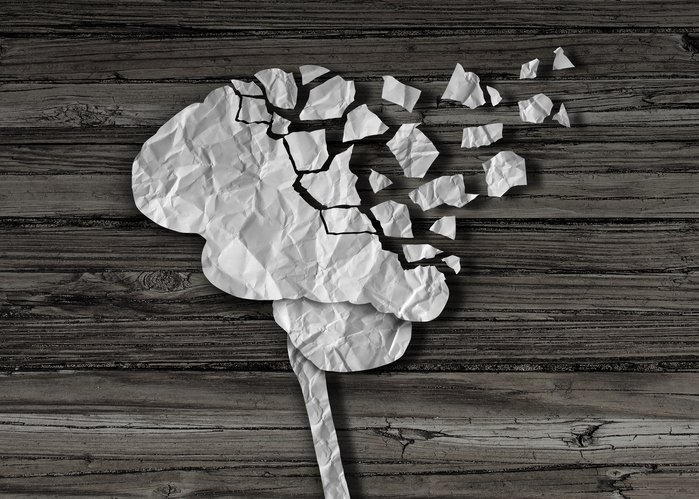
Drug addiction is a tricky disease that may stick around for some time even after relentless efforts of trying to overcome it. It will always try to sneak up on you when you’re least expecting it, and you may end up falling prey again.
Relapsing is a common problem faced by most people in recovery, and if it’s not managed on time, the patient may go back to substance abuse. As such, drug and alcohol addiction treatment facilities are seeking better ways of preventing relapse to help their patients go through an addiction recovery successfully.
The first step to dealing with addiction relapse is to discover your triggers for relapse and come up with a detailed plan on how you’ll manage them. While some addiction relapse triggers are more obvious than other, some are less straightforward, and, therefore, you may have to think deeply to identify them.
Top 12 Addiction Relapse Triggers
To help you avoid relapse, and return to sober living, we’ll look at some of the most common relapse traits below. With this in mind, you’ll be able to avoid triggers for relapse and stay strong in your recovery from addiction.
1. Stress
This is the top cause of addiction relapse. Most addicts tend to turn to their substance of choice as a way of coping with stress. Eliminating all the stress from your life is not possible, but you can look for positive ways to manage it without going back to substance abuse. Additionally, you can avoid situations of negative or extreme stress by making changes in your relationships and lifestyle. Increasing healthy behaviours such as regular exercise and healthy eating can help you to avoid relapse.
2. People or Places Connected to the Addictive Behaviour
Hanging around people who shared your addictive behaviour and are still engaging in it can trigger addiction relapse. Your family members might also be a trigger, especially if some of them use drugs. The truth is, you can’t deal with your drug addiction problem if you stick around family and friends who are still using drugs and alcohol. To avoid relapse in such situations, you can change the environment and keep yourself busy.
3. Negative Emotions
People in recovery encounter negative feelings during the transition. Sometimes they have to battle feelings of rejection and sadness. This can force them to turn back to substance abuse to get temporary relief from those feelings. It’s not possible to elude feeling sad, angry, guilty, or lonely, but there are better ways of coping with it. If you feel overwhelmed by challenging emotions, you can consult a drug addiction specialist who can help you to develop strategies to learn how to cope with them.
4. Being Exposed to Your Object of Addiction
A small reminder of your addiction can cause you to relapse during an addiction recovery process. Watching family and friends sip cocktails, or smelling a whiff of cigarette smoke in the neighbourhood are common reminders that can drag you back to substance abuse in the early stages of quitting. Such triggers are everywhere and the only way to avoid relapse, in this case, is by finding substitute behaviour. Performing relaxation techniques can help you resist such triggers.
5. Social Occasions
Occasions such as birthdays and holidays can trigger a relapse. It’s quite normal to feel in control and sure that you can handle that one drink or smoke without falling back. But can you trust yourself with drugs if you’ve been a victim of drug addiction before? The reality is, you may not be able to keep it under control, and, therefore, you may end up being a victim of addiction relapse. To be on the safe side, avoid taking even a sip. You can opt for alternative drinks such as fresh juice instead.
6. Loss of Commitment to their addiction recovery program
Addicts who aren’t committed to their recovery program are at high risk of becoming victims of addiction relapse. If you start giving excuses for not attending the recovery programs, then know that relapse is knocking at your door. Remember, if you’ve suffered long term drug addiction, you need help to go through the addiction recovery. Therefore, be consistent in attending the recovery programs.
7. Depression
Returning to sober living can sometimes be accompanied by depression. Once the effects of being high are gone, one can be plunged into a sea of depression. In the process, they may turn to substance abuse to get over their depression. It’s normal to feel depressed when trying to overcome drug addiction, but you can opt for positive ways of dealing with it. You can practice some relaxation and mindfulness to overcome this.
8. Physical Pain
If one is suffering from a medical condition that causes them a lot of pain, they may be tempted to use drugs and alcohol for relief. This is very risky as the drug addiction problem may recur. If you’re suffering physical pain you can seek medical treatment instead of turning to substance abuse. The pain may just subside after taking some prescription drugs.
9. HALT: Hungry, Angry, Lonely, Tired
HALT is commonly used to describe perilous situations for those people in recovery. During an addiction recovery process, one is normally so vulnerable to any form of a negative situation. However, when they are aware of high-risk situations, they can avoid such states. If you’re undergoing addiction recovery, avoid getting too hungry, angry, lonely, and tired. Such situations may draw you back to substance abuse. You may have to plan for your meals, stick to a strict sleep schedule, and attend support groups to avoid such situations.
10. Over-Confidence
Self-confidence during an addiction recovery process is most important, but becoming over-confident puts you at a high risk of becoming a victim of addiction relapse. As things begin to balance out, you may feel as though you no longer need to adhere to a recovery program, or think you’re strong enough to survive in risky situations. Such habits can drag you back to substance abuse. So, keep over-confidence far from you to avoid relapse.
11. Social Isolation
You need people around you for you to go through the addiction recovery process successfully. Staying away from family and friends can plunge you into loneliness, and without knowing, your drug addiction problem may sneak in. Social isolation is a common struggle for people in recovery, but you can always overcome this by reaching out to family and friends or forming a sober support network.
12. Sex and Relationships
When you’re in recovery, don’t try to fill the void left by sobriety using relationships. It could plunge you into yet another addiction – sex addiction, and in case the relationship breaks, you may turn to drugs and alcohol to get over the heartbreak. Avoid relationships in early recovery as you aren’t strong enough to take up the challenges that come with it. Just focus on the recovery, to avoid relapse.
Addiction relapse can take you back many miles during the recovery process. Therefore, it’s important to familiarize with common addiction relapse triggers to avoid relapse.
Posted on Wednesday, October 30th, 2019 at 2:31 pm in Addiction, Latest News, Rehab.






 Call Us
Call Us Contact Us
Contact Us